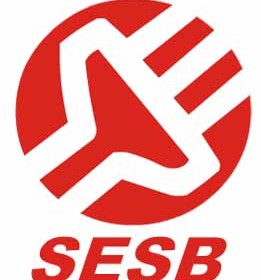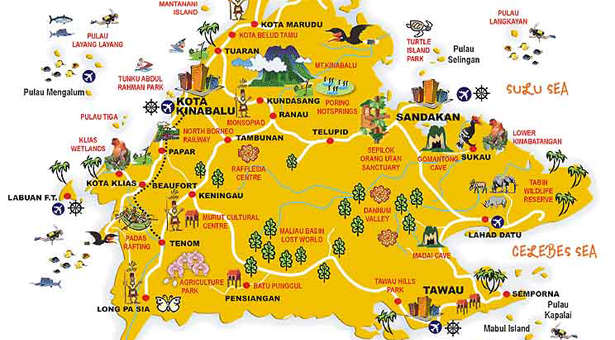Jean Baptiste Colbert (1619-1683) was a French politician who served under King Louis XIV. He was the protagonist who made France the dominant economic power in Europe in the 17th century.
Colbert once said that “the art of taxation consists in so plucking the goose as to obtain the largest possible amount of feathers with the smallest possible amount of hissing”. This saying has been the main premise of Colbert ‘s successful tax reforms in France.
Adam Smith, another great economic philosopher and proponent of capitalism, outlined four requirements of a sound tax system, which Smith termed as the Canon of Taxation in his famous book, “The Wealth of Nations”. The four requirements are:
- Equality: tax payments should be proportional to income;
- Certainty: tax liabilities should be clear and certain;
- Convenience of payment: taxes should be collected at a time and in a manner convenient to a taxpayer; and,
- Economy of collection: taxes should not be expensive to collect and should not discourage business.
Both these influential scholars sparked a revolution in the economic structure of Europe, particularly its tax policy. Both assume effective taxation is when governments have a broad, reliable and equitable approach.
Certainly no rational person enjoys paying taxes. As unfair as it may seem, however, taxes do have a purpose. The obvious reason people need to pay tax to governments is the provision of public goods like road, public transport, utility public schools and universities, public safety and security, hospital and basic infrastructure.
Public investment is important to attract investors to a country. It is unlikely the private sector would want to invest in public goods. It has been a government’s responsibility to provide public goods. All public investments to meet public and private needs are derived from taxes. Hence taxes are an important source of revenue.
After the recent budget announcement, Prime Minister Datuk Seri Najib Razak’s administration introduced a goods and services tax (GST), which come into effect in April 2015 and will replace the sales and service tax.
Like most developed nation, GST has been long mooted to improve government revenues to ensure greater public investment for the people to enjoy better public goods. Any tax reforms would not appeal to the people, given the assumption that increasing prices will burden the people.
Setting aside the emotional conclusion of the recent tax reforms, I attempt to view the rationale of the GST and why governments do what they do. According to Datuk Seri Idris Jala, GST is one of measures that the Government will be taking to overhaul the financial system to find new sources of revenue and improve tax collection. He said that GST was part of a holistic programme of improvements which will be combined with other measures to help us achieve a high-income and developed-nation status in a sustainable and inclusive manner.
Idris, the CEO of the Performance Management and Delivery Unit (Pemandu), may have a good argument, particularly “finding new sources of income”, because the current tax base is too narrow. The Government is dependent too much on income tax, both individual and corporate.
Research shows that out of some 29 million Malaysians, fewer than two million pay income tax. Hence, there is a considerable number of tax evaders who enjoy a “free ride” on public goods. Hence, the GST is to broaden the tax base. This is a tax levied on every step in the value-added process and is a consumption tax. Therefore, it hits those who spend more. If you wish to consume exclusive goods, then you have to pay more.
Another reason the Government is prompted to undertake tax reforms is because of the previous administrations’ huge investment expenditures.
Policies, such as the New Economic Policy, privatisation projects, automotive policy, cost billions to ensure they meet their overarching objectives. Economic liberalisation which emphasised industrialisation and privatisation required substantial amounts of taxpayer money to expedite the process.
The Government had to introduce a “bailout plan” following the Asian financial crisis in 1998 and the global recession of 2008. Both downturns forced the government to spent billions to revive the economy.
The Government had no choice but to pump money into the state-owned enterprises and government-linked companies to sustain the ailing economy. Injecting money into the economy is central to improve public and direct domestic investments to boost confidence in the economy.
The spending to sustain growth is commendable. It resulted in Malaysia’s median monthly income reaching RM5,000, a steady decline in the poverty rate, competitive human capital development and availability of business infrastructure. The Government’s efforts have resulted in Malaysia being ranked 25 out of 144 most competitive nations by the World Economic Forum. Regionally, it is behind Singapore.
Despite the laudable success, the Government has been running a deficit budget for more than a decade. According to Jomo and Wong in their book, “Malaysia@50”, the main source of Malaysia’s budget deficit until today remains the 1998 Asian financial crisis.
In short, Malaysia’s financial capacity has been depleted and it has not recovered fully from it. Domestic investment and net foreign direct investment inflows as a percentage of gross domestic product plummeted in 2012.
Malaysia faced stiff competition after Vietnam opened its door to FDI. Less FDI also means that the nation obtains less revenue. Therefore, the national income is tight.
It is a bad approach for the government to apply for a supplemantary budget or print more money as this could depreciate the ringgit further.
Certainly, external borrowing is not politically appealing. Hence, given that the Government has invested large sums of money to make Malaysia better off compared with 30 years ago, the author believes it is justified for the Government to widen its tax base to increase revenue. Just like a parent who brought up a child to be successful, it is a social expectation that the child should support the parent financially in return. Thus, the value-added consumption tax is required to improve public investment.
The implementation of the GST could increase revenue. There should be a thorough planning of public investment and effective implementation of public policy. If Najib propounds that evading tax is an act of treason, then the act of wasting public fund should also be seen as treacherous.
Therefore, it is a sin for the government to mismanage public resources.
Taxes as part of national revenue should have a “locus of focus” for public investment, such as a particular state in dire need of development – Sabah.
Sabah is seen as key to Barisan Nasional retaining power, yet Sabah is still lagging behind compared with the other states. There are many facets of development needing serious attention in Sabah.
The unemployment rate in Sabah remains the highest in the country at 5.5%, despite the poverty rate having declined over the years to 8.19%. Furthermore, the mean monthly income in Sabah is below RM3,000 and somehow, growth is slow in the state.
Therefore, there is a need for the Federal Government to reduce regional development disparities between states and also narrow the gap between urban and rural development. Infrastructure, utilities, road, accessibility to schools, among others, remain a major problem in certain areas.
The basic foundation for supporting a business ecology and people’s wellbeing is central to improving the socio-economic development in Sabah. A lack of basic infrastructure is a disincentive to business players coming to Sabah, which then leads to less competitiveness.
This may slow down growth and have an adverse effect on the social wellbeing of Sabahans. Although the state government tabled a substantial budget to enhance development, there must be strong federal support to expedite the pace of development. After all, Sabah is the fixed deposit of the ruling coalition.
- Firdausi Suffian is a lecturer in Faculty of Administrative Science and Policy Studies at University Teknologi Mara, Sabah.
Disclaimer
You are free to comment on this article using a valid Facebook account.

























